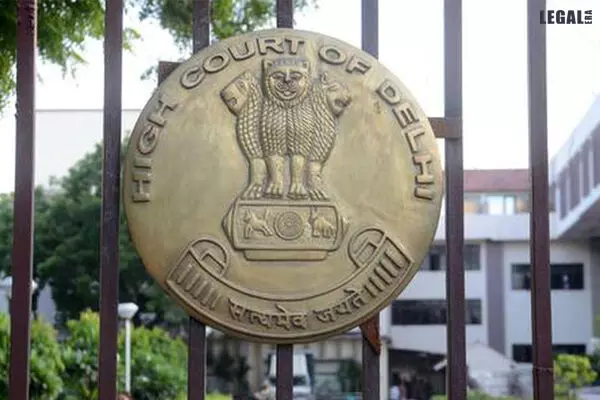- Home
- News
- Articles+
- Aerospace
- Artificial Intelligence
- Agriculture
- Alternate Dispute Resolution
- Arbitration & Mediation
- Banking and Finance
- Bankruptcy
- Book Review
- Bribery & Corruption
- Commercial Litigation
- Competition Law
- Conference Reports
- Consumer Products
- Contract
- Corporate Governance
- Corporate Law
- Covid-19
- Cryptocurrency
- Cybersecurity
- Data Protection
- Defence
- Digital Economy
- E-commerce
- Employment Law
- Energy and Natural Resources
- Entertainment and Sports Law
- Environmental Law
- Environmental, Social, and Governance
- Foreign Direct Investment
- Food and Beverage
- Gaming
- Health Care
- IBC Diaries
- In Focus
- Inclusion & Diversity
- Insurance Law
- Intellectual Property
- International Law
- IP & Tech Era
- Know the Law
- Labour Laws
- Law & Policy and Regulation
- Litigation
- Litigation Funding
- Manufacturing
- Mergers & Acquisitions
- NFTs
- Privacy
- Private Equity
- Project Finance
- Real Estate
- Risk and Compliance
- Student Corner
- Take On Board
- Tax
- Technology Media and Telecom
- Tributes
- Viewpoint
- Zoom In
- Law Firms
- In-House
- Rankings
- E-Magazine
- Legal Era TV
- Events
- Middle East
- Africa
- News
- Articles
- Aerospace
- Artificial Intelligence
- Agriculture
- Alternate Dispute Resolution
- Arbitration & Mediation
- Banking and Finance
- Bankruptcy
- Book Review
- Bribery & Corruption
- Commercial Litigation
- Competition Law
- Conference Reports
- Consumer Products
- Contract
- Corporate Governance
- Corporate Law
- Covid-19
- Cryptocurrency
- Cybersecurity
- Data Protection
- Defence
- Digital Economy
- E-commerce
- Employment Law
- Energy and Natural Resources
- Entertainment and Sports Law
- Environmental Law
- Environmental, Social, and Governance
- Foreign Direct Investment
- Food and Beverage
- Gaming
- Health Care
- IBC Diaries
- In Focus
- Inclusion & Diversity
- Insurance Law
- Intellectual Property
- International Law
- IP & Tech Era
- Know the Law
- Labour Laws
- Law & Policy and Regulation
- Litigation
- Litigation Funding
- Manufacturing
- Mergers & Acquisitions
- NFTs
- Privacy
- Private Equity
- Project Finance
- Real Estate
- Risk and Compliance
- Student Corner
- Take On Board
- Tax
- Technology Media and Telecom
- Tributes
- Viewpoint
- Zoom In
- Law Firms
- In-House
- Rankings
- E-Magazine
- Legal Era TV
- Events
- Middle East
- Africa
Delhi High Court orders cyber squatter to pay Rs.2 crore penalty to Adobe for trademark infringing

Delhi High Court orders cyber squatter to pay Rs.2 crore penalty to Adobe for trademark infringing
Noted that the US and Singapore arbitration forums had passed several orders against the defendant in similar cases by international companies
The Delhi High Court has ordered an 'inveterate' cyber squatter to pay Rs.2 crore damages to Adobe Inc for infringing its trademarks associated with brands Photoshop and Adobe Spark.
In the Adobe Inc vs Namase Patel case, the single-judge bench of Justice C Hari Shankar noted that the defendant was also infringing the trademarks of several international companies.
It observed that the United States National Arbitration Forum (now known as Forum) and the WIPO Arbitration and Mediation Center, Singapore passed several orders against the defendant.
The court stated, "These orders clearly indicate that the defendant is an inveterate cyber squatter, whose main sphere of activities involves infringing the well-known domain names by using deceptively similar domain names and thereafter, indulging in further misuse and infringing activities."
The judge added, "The plaintiff shall be entitled to the quantum of the damages claimed in the suit of Rs.2 crores. These damages are intended to be a deterrent given the nature of the activities of the defendant. He is recognized even in foreign jurisdictions as an inveterate and habitual cyber-squatter and domain name infringer."
Adobe had filed an appeal seeking a permanent injunction against the defendant from using the domain names www.Addobe.com and www.Adobee.com, which are deceptively similar to the plaintiff's website www.adobe.com.
Adobe claimed that the domain names had similar email IDs due to which, if a person by mistake misspelled adobe.com in the email ID, the email was received by the defendant. It asserted that most of those emails were confidential.
A forensic report submitted by the plaintiff highlighted that the defendant had configured the domain names www.addobe.com and www.adobee.com with the plaintiff's brands Photoshop and Adobe Spark.
During the hearing, the cyber cell of the Mumbai Police reported its inability to trace the defendant and his IP address showed his location in the United States.
The court, thus, passed an ex-parte order as the defendant was not available for the proceedings.
The bench ruled, "The defendant, as well as his employees, servants, agents, representatives and others associated with him, shall stand permanently restrained from registering any domain names which incorporate or otherwise use the plaintiff's trademark Adobe, Photoshop or Spark in a manner which would infringe the plaintiff's registered trademarks or would otherwise infringe the trademark."
Ordering the defendant's access to his two domain names be blocked, Justice Shankar added, "There shall also be a decree of permanent injunction restraining the defendant from disclosing any confidential material received by him relating to the plaintiff to any third party."



